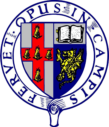Drax Free School and Jamaica Free School
Jamaica College was founded in 1789 (making it the third oldest high school in the country) as the Drax Free School in the parish of St. Ann by Charles Drax, a planter of that parish.
Drax came to Jamaica from Barbados in 1721 and left money in his will to establish a charity school in St. Ann. There were some delay and legal proceedings before the money was handed over to the St. Ann Vestry. In 1806 Walton Pen was bought for the site of the school, and a year later another act of Legislature gave the school the name, “The Jamaica Free School”.
Jamaica High School
In 1879, during the governorship of Sir Anthony Musgrave, provision was made by law for the Jamaica Free School, under a new name, The Jamaica High School, to come under the control of the Jamaica School Commission. The school now had a new headmaster, Reverend (later Archdeacon) William Simms. This law also authorized the removal of the school from Walton Pen in St. Ann in 1883, and classes were conducted in the Barbican Great House until 1885.
First University College
In September 1890, a college, then known as University College, was opened in connection with the school. In 1902, roughly a century after the endowment of the Drax Free School, the Jamaica High School and the University College were amalgamated under the name Jamaica College. This made J.C. the first University College of Jamaica, long before the founding of the University of the West Indies in the mid 20th Century.
Jamaica College
The buildings on Old Hope Road were opened on 9 July, 1885, and the first classes here took place in September of the same year.
By the 1930’s, with an expanded student population, J.C. was actually functioning as an established high school. This role was formalized in 1957, with the introduction of the Common Entrance system and the democratization of the Jamaican secondary education system.
From 1902 to 1967, Jamaica College functioned as a boarding institution. Today, as a day school, it boasts students from a wide cross-section of the society. Over the years it has nurtured a rich tradition in athletic and academic fields. Its Old Boys continue to play important roles in the religious, political, business and professional services of our country. The school’s rich history continues to be written by present students, who respond to its motto, “Fervet Opus in Campis”.

